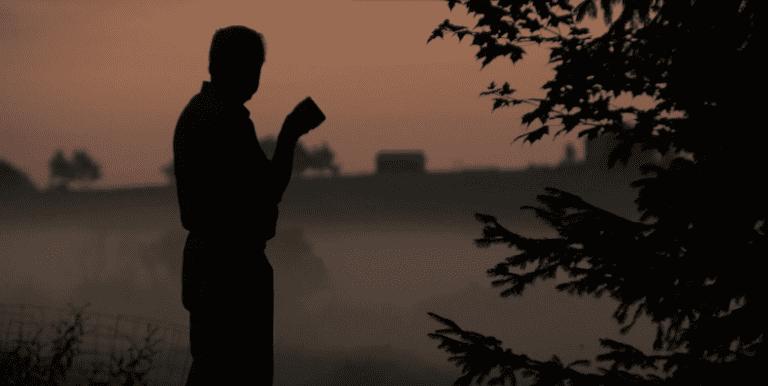
Asay: It seems that often Christians—particularly evangelical Christians of which I consider myself to be—sometimes downplay this issue. Why is that?
Conover: It’s a question I really have also. I asked that of the people I spoke with. I think that Ben [Lowe, founder of Young Evangelicals for Climate Action] addressed that by saying he felt that particularly the elders in his church were worried that a focus on environmental issues was a distraction from more important work. And he understood that, but he really felt like he could not care for God if he didn’t care for His creation. And that he just really took the words in Genesis 2:15 as it was people’s job to take care of the garden. Cal DeWitt, he spoke about the Bible as an ecological handbook. As to why more people don’t pay as much attention to those parts of the bible, I don’t know. I think sometimes there are struggles between politics and faith that happens within certain communities, and they’re—I was very struck with Katharine Hayhoe [director of the Climate Science Center at Texas Tech University], who said the tension between those two sometimes leads people to choose politics before faith. Before Scripture. And that was very interesting to me. But I don’t know. It’s a good question.
Asay: When I talk with Christians who downplay environmental issues, particularly that of climate change, they often acknowledge that the world is getting warmer. But they say that these sorts of fluctuations in temperature are just part of the normal way of things—not caused by us at all. And they point to some previous gloom-and-doom predictions from scientists that, they feel, haven’t turned out to be true. If you were addressing a Christian who didn’t believe in climate change, how would you respond?
Conover: First, I’m not a scientist. But [environmental scientist] Cal DeWitt kind of talked me through how he would answer your question. He said that, for starters, science and its findings are not beliefs. He describes science as a very disciplined way of asking questions. And what happens in response to those questions, there are findings that emerge slowly—scientific paper by paper. And each paper, each finding, is criticized by many, many different people, people who don’t know each other. Each finding, each paper, is tested in the world, and highly scrutinized. If any finding is shown to be inaccurate—and there have been certainly inaccurate ones—what happens then is a new question replaces the old one. And over time, in this way, science, becomes more and more durable.
It’s not to say that there’s not a political aspect to it. That, I’m sure, creeps into all parts of human life. But there is something in this process. You pay a really steep price as a scientist, if you put out a paper that isn’t in this trajectory; that’s just an opinion. You would lose your standing as a scientist.
And I think he where that science is now, as Katharine Hayhoe describes … she’s quite clear that there are impacts out there, and that they are connected to human activity. It can be to look at what needs to be done, given those impacts, and I think that overwhelming roadmap, that’s what a lot of people are really most nervous about, actually. But I think that the science is pretty clear.













